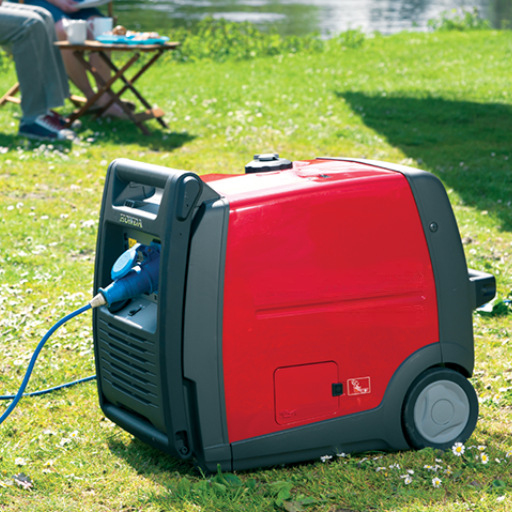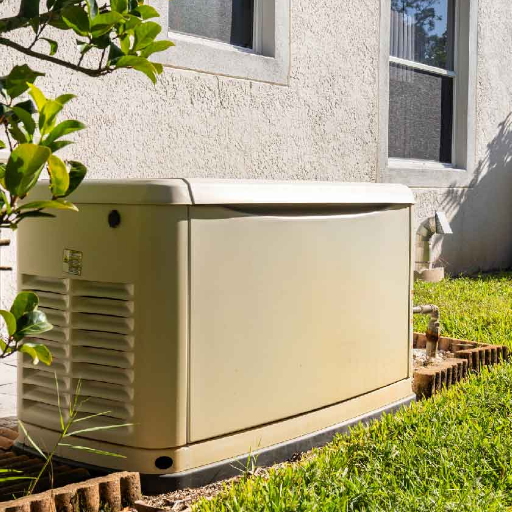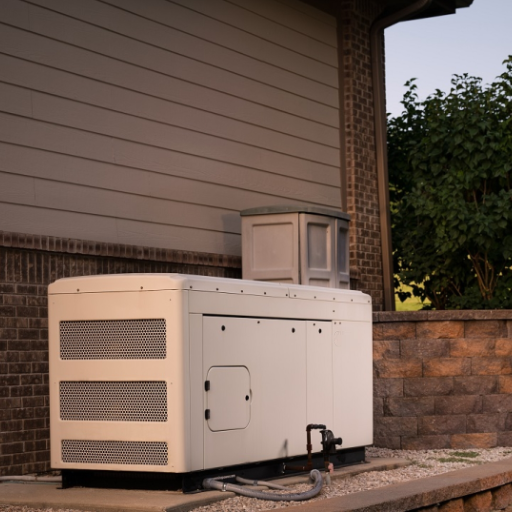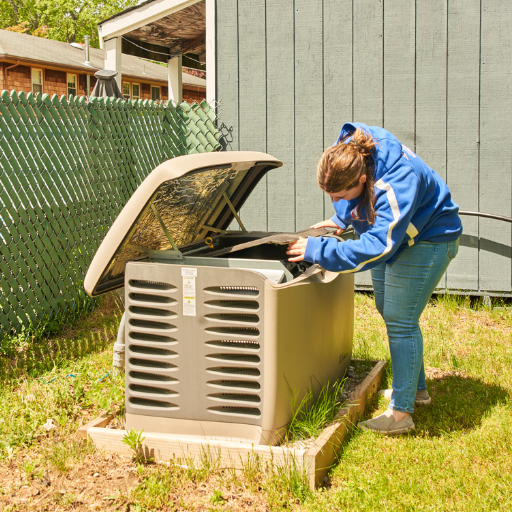Investing in a generator stands as one of the few investments that enhances one’s home safety and convenience. It delivers peace during those unavoidable moments when there is no power supply. Unfortunately, installing this backup power source involves steps that must be taken with the utmost care to achieve functionality and safety. This blog aims to assist you in comprehending the generator installation process by hiring a reliable electrician. Furthermore, we will delve into the technical details concerning the hookup of generators, the risks associated with the do-it-yourself installation, and the advantages that professional services provide. By the end of this article, you will understand why the only way to meet the home’s energy needs is to have professionals install the system.
What to Consider When Hiring an Electrician for Generator Installation?
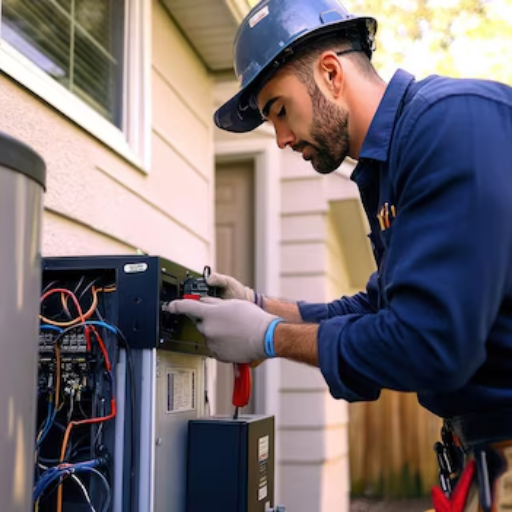
Image source: https://www.freepik.com/
The first thing to do when hiring an electrician for generator installation is to ask for the technician’s credentials and license to confirm that he or she is authorized to perform such acts in the given vicinity. When looking for good electricians for generator installation, always consider the experience. Inquire for the documents of people they have worked for to see whether clients can rely on them. Also, check if they have special training about building codes and regulations in the area where the installation should take place. It is always best to ask about pricing before any contracts are formed, including factors that may increase costs. Last, ascertain a provision for a warranty of the experts’ work to take care of the repairs if any defects arise within a specific period.
What Qualifications Should a Licensed Electrician Have?
A licensed electrician should generally achieve the combination of formal education, practical experience, and certification. To begin with, they should possess an education from a recognized apprenticeship program or vocational training institution, equipping them with theoretical and practical experience. In addition, a valid journeyman or master electrician license or endorsement is essential, especially when the installation requirements are more sophisticated. This indicates that they have done the necessary examinations and followed the required practices. For example, most of them hold an understanding of the NEC. They lacked the essential information or education, including new regulations. This means they possess acceptable and advanced essential electric knowledge and related outcomes as it requires continuous education. Last but not least, well-developed analytical abilities and attention to detail, even when the issues are redundant, are essential in recognizing the problems and solving them accordingly.
How to Determine the Right Generator for Your Home?
In order to find the right generator for my home, I begin by determining my needs and evaluating which appliances should remain operational during an outage. The pricing of genera may include a refrigerator, heaters or batteries, or lighting. I add everything and note how many watts I will need, ensuring the generator can deal with the burden quickly. At this stage, it is easy to choose between portable and standby generators; for example, portable ones are cheaper, but standby ones are more suppressors as they can go off onsite. The fuel type is significant as there are many options for fuel. An estimate of that fuel’s overall cost and availability in my region should also be made. The last point includes overhead costs for installing the generator, regular repairs, and zoning restrictions. I am sure that, ideally, I could select a power generator that fits my requirements and finances quite well.
What Are the Common Electrical Hazards During Installation?
Regarding electrical hazards during the installation phase, I focus on some admittedly common threats. This is pertinent as electric shocks are a significant risk, especially when there is a chance of them directly coming into contact with live wires. To solve this, I ensure that every power source is turned off before commencing any work. I also focus on defective wiring, which affects overheating and short circuits, which put one at significant risk of fire; thus, all connectors are stable, and high-grade materials are in use. Moreover, regarding moisture exposure, I understand that such increases the odds of electric injuries in high moisture conditions. Other factors that lead to risk include poor grounds and overload of the circuits, which often leads to such emergencies. So, there are some precautions to follow proper ground techniques, and I do not overload the circuits by circling overloading. Finally, suitable personal protective clothing is necessary to prevent electrical accidents, including gloves and goggles, depending on the work to do.
What Are the Costs Involved in Installing a Portable Generator?

Regarding portable generator installation, quite a few costs are likely to be incurred. A lot depends on the generator itself; it may vary from a few hundred dollars to several thousand dollars depending on the size and power of the generator. Furthermore, purchasing and installing a transfer switch, which is crucial while connecting the generator to the home electrical circuit, adds $200 to $800 and over that amount. The cost of having the setup done professionally might range between 300 to 1,000, depending on the setup’s complexity and the prevailing wages in the location. On top of the installation costs, other costs, such as obtaining allowable or paying for routine inspections, may be incurred depending on the requirements in that area. It is equally important to understand that there are so-called ‘operating costs incurred after installation’ such as fuel expenses and routine repairs and services so that they adequately ensure the generator will run properly and securely for a long while. With these costs in mind, it will be possible to reach a reasonable choice concerning power needs from the point of view of budgetary limitations.
What Factors Affect the Cost to Install a Portable Generator?
While analyzing factors for the cost of installing a portable generator, it is apparent that several items escalate the overall costs. The first is the number of watts produced by the generators and how that translates to the overall cost of the generator; larger, more powerful models are expensive. The third factor is the selection of the switch or switches and configuration, which may prove costly since a transfer switch is essential for safety reasons. Still, it may require expert installation, which may be cumbersome and expensive. The location of the installation is another factor since the labor cost varies from place to place. Hence, the cost of providing professional services is likely to be affected. Even the type of generator installed may cost more due to the appropriate permits and inspections that must be made if such requirements are fulfilled, as they have stringent guidelines for the installation of the generators. Hence, taking care of these aspects while forward-looking makes sense, as these are vital to maximum installations and usage of the portable generator to suit the person’s expectations and informal needs.
Are There Any Additional Fees for Generator Installation Services?
Upon exploring the installed generator services, I also found some additional fees. First, there will likely be extra costs for getting the necessary permits, depending on the area. Second, if there is a need to make any electrical upgrades or changes to existing electrical infrastructure, such as changing the outlets or doing some wiring, these could also attract more costs. Finally, some services may provide extra features such as an extended warranty for an additional fee, which is optional but very useful for long-term worries. I believe these potential fees are the most significant risk as I have to ensure they will fit the rental price for the installation.
How to Budget for Backup Power Solutions?
Budgeting appropriate power unit investments is essential when dealing with new construction or renovation safety requirements. One always utilizes power in kilowatts (kW). Therefore, it is vital to calculate the size of the generator by first establishing the power requirements of the consumer. In this basic calculation, the first thing to do is add up the loading wattages of all the critical appliances and systems you wish to run concurrently. The next step is to select the most beneficial and economical type of ordinary generator amongst the portable, standby, and inverter generators. Other costs are also incurred with the provision, such as procuring a proper transfer switch and other electrical fittings that may be required after a systematic spinal analysis. Supplemental costs can include as well permits and inspections required by law.
To optimize your investment, relate the operational expenses that tend to change from one type of generator to another or even the kind of usage, such as fuel efficiency and maintenance. Look into other factors such as additional costs — extended warranties — how they help and maintenance plans that could bear a certain level of customer protection. Always return to your budget to reflect changes in energy needs or installation conditions, and seek advice from the cognoscente regarding the decisions made concerning technical matters of power requirements and your resource availability.
How to Safely Connect a Portable Generator to Your Electrical System?

Properly connecting a portable generator to your electrical system requires preventive measures for both efficiency and safety. First, check that the generator has been set outdoors in a well-aired space to avoid carbon go poisoning. Grab a heavy-duty outdoor extension cord to connect the generator to the appliances that require electricity, ensuring that the extension cord is suitable for outdoor use and fitted with the correct amperage rating. Fixing a generator to a wall socket is quite disastrous as it leads to back-feeding, which harms utility staff and the house itself. Connect it to the house’s electrical grid only using a manual transfer switch installed by a qualified electrician that ensures a safe connection of the generator to the grid. Always observe the operating and maintenance instructions to protect the device from damage and increase its service life. Finally, ensure these tests are carried out regularly to confirm their functionality during an outage.
What Equipment Do You Need for Portable Generator Hook-Up?
Once you have decided to hook up a portable generator, many essential items become necessary for the task. Start by acquiring a manual transfer switch; it is a crucial piece needed in safely connecting your generator to the entire electrical system of your house, thus preventing backfeeding. Then, use heavy-duty outdoor-rated extension cords rated for use outdoors or cables that can support the output from the generator. A power inlet box is closed to the side of the house and contains wires going into the house. It is also strapped to the outside of the house to provide a point where the generator can be attached to its electric supply. A generator cord connects your generator to the power inlet box and acts like a conventional electrical cord. Use a recreational cord to connect the inlet and appliances, choosing enough length and gauge for items you want to run in case of an outage. Lastly, look for a grounding rod and a copper wire that you can use to provide the proper grounding for your generator to meet safety at the same time as the local codes. This equipment setup ensures that when there is an emergency blackout, there is an alternative source of power that is fast, safe, and does not last for long.
How do you install a transfer switch for a home generator?
Installing a transfer switch for a home generator rotates around several vital steps to ensure safety and follow the required guidelines. The first step involves selecting the proper transfer switch for my generator. After that step, I switched off the power supply in my house by switching off the main breaker for safety reasons. I also helped position the transfer switch procured by a designated electrician close to the main electrical panel. The wires from the transfer switch to the circuits in the panel are connected with caution; they go to the necessary circuits that the homeowner wants to energize in case of an outage. I then reconnect a generator power cord with a power inlet into the transfer switch. Finally, I demonstrate the whole setup in that I will simulate a power outage, turn on the generator, and confirm that all circuits are being drawn from the generator. This increases safety measures and is the best alternative in case the electrical supply fails.
What Are the Best Practices for Running a Portable Generator?
Like any other electrical appliance, running a portable generator involves following some safety tips to do so effectively. First, a generator must be installed outside in an open place, at least 20 feet removed from doors, windows, and vents, to prevent carbon monoxide poisoning. Make sure your cords are of the proper size to match the output apportion of the rated generator and are extendable even outside for outdoor appliances. Before starting, check the oil level and the fuel reservoir, and use just the type of fuel designated by the manufacturer. Take care of the total wattage of their minimal appliances while preventing the proper use and, therefore, overheating the generator, for example, replacing a power cord plug connection to AC mains. Wipe down or wash all dust and air filters, as the owner’s manual recommends, including nontobacco air filters and spark plugs. In addition, all portable generators must be devoid of danger arcing, thus grounding must be looked into, and in some cases base rods may be necessary, adhere to association code regarding safety. Thanks to these practices, it is now possible to increase safety even when the portable generators are used to deliver power.
What Are the Benefits of Professional Generator Installation?
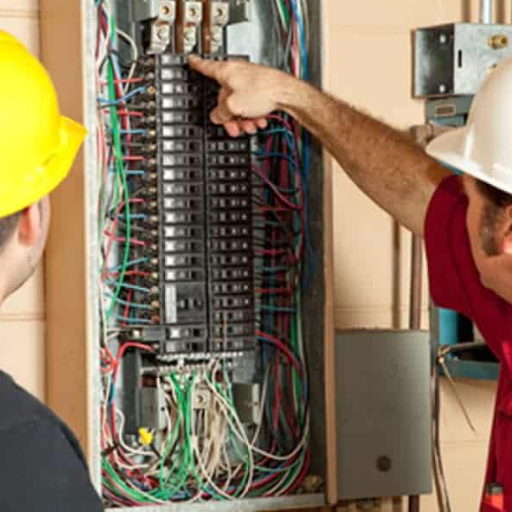
Getting your generator installed by a professional has several advantages in terms of security and reliability. Professionals always know how to mount and install the unit to avoid creating unnecessary dangers such as carbon monoxide poisoning or electrical short circuits. They ensure that the wiring is done to the set standard of society, which may save on future expenses in the form of penalties. Furthermore, they also explain how to maintain and operate the generator, increasing its effectiveness. Working with specialists usually also means having guaranteed warranty and support for the system, ensuring sufficient and proper usable backup power will be available when it is most valuable.
Why Choose Professional Installation Over DIY Options?
Choosing a professional installation instead of a generator has many advantages that make self-installation efforts seem needless. First, these technicians possess specific training and expertise that facilitates a safe and proper installation, thereby minimizing expensive mistakes or extreme situations like electrical shocks or poisonous gas leaks. Two, certified installers do not have any hassles because they are well-versed in the correct building codes and regulations, which helps protect them from any legal consequences. Furthermore, several professional companies extend guarantees and maintenance contracts, which are beneficial even during upkeep. Lastly, professional installation generally reduces the risk of poor performance or damage to your generator’s efficiency since all factors will be considered when fixing it professionally, and the risk of such disappointment hazards is minimized.
How Does Professional Installation Ensure Safety?
I know my safety lies in professional installation, so I am utilizing the skills and experience of those engaged in generator installation. Such specialists are well-trained to observe standard operating procedures. They are familiar with setting up generators to avoid safety issues such as electric shock and gas leakages. They take care of a situation where misalignment of any part of the equipment with the local safety requirements takes place and thus can avert any chances of disaster or malfunction. One of the advantages of hiring professionals to install the units is that they perform the necessary tests to verify the proper functioning of all the components installed. I am comfortable knowing that the installation is done by professionals who take the installation very seriously, so I know my generator will work properly when there is a need.
What Are the Long-term Benefits of Professional Generator Services?
Long-term advantages of engaging professional generator services pertain to enhancing the reliability and effectiveness of the power system. Professional generator services include a quality assurance that certified technicians will ensure a generator is appropriately hypothetically maintained. This is likely to enhance its lifespan and energy efficiency. Things like disturbance limits, voltage settings to be adopted, switchboard consoles, planned hours of routine maintenance, and acts are expertly controlled to avoid excessive wear and tear on such systems. This technique reduces the chances of assuring the system will encounter untimely breakdowns, resulting in expensive repairs. Other benefits involve offering professional advice on upgrades and replacements, which keeps the system in line with technology and the changing energy demands. To conclude, commercial services provide reassurance by providing in-time assistance and skilled advice, which facilitates the continuous stability and security of the power system.
What Should You Expect During the Generator Installation Process?

As part of the generator installation process, a site evaluation must also be performed to ascertain the most appropriate place for the equipment. This includes looking at the distance from utility lines, the building’s electrical panel, the architectural plan, etc. Once appropriate space has been established at the construction site, skilled experts will take over, acquiring the relevant policy documents and planning for the installation day. This stage entails placing the generator, attaching it to a fuel supply line, and finally incorporating it into the existing electrical system. Furthermore, this system will be carefully evaluated to determine if every detail has been adequately placed for normal operations without causing any danger. Last, you will be given guidance about the generator’s operation and maintenance and how to use it when the electrical supply fails.
How Long Does It Take to Install a Generator?
Several factors, including the house’s location, the installation schedule’s complexity, and local permitting requirements, determine the duration it takes to set up a generator. In most cases, the procedure may take a week to two weeks until the whole testing process has been carried out. When it comes to the actual setup or assembly of the generator, this usually takes about one to two days, followed by some inspections or testing to check if everything is in order. Depending on the local authorities, permitting may take some time, sometimes a few weeks. This is why coordinating well in advance with an installer will significantly reduce the time spent trying to look for any other solutions that may be burdensome.
What Steps Are Involved in the Installation of a Standby Generator?
I recall that some critical operations were performed when I installed my standby generator. The first step was to get an electrician to come to my home and examine various areas to suggest the most appropriate one for the generator. This involved considering how far it would be from the utility connections and the main electrical panel and the requirements of local building and zoning codes. I was then shown the appropriate place where the generator was to be installed, and my technician took care of the entire process of getting the permits, which are subject to vary according to the governing local laws.
After obtaining the necessary permissions, the first stage of installation consisted of mounting a generator unit and connecting it to an external fuel – natural gas or propane. Power integration with my electrical system followed, thus permitting a power transition in case of an outage. When the operation was complete, the system was carefully evaluated to see if all functions worked as they were meant to throughout the system. I was also briefed on the use and maintenance of the generator by my installer so that I would be ready when there is a power failure. This systematic approach, which stretched over a few days to weeks, was critical in ensuring that my standby generator was operational.
How to Prepare Your Home for Generator Installation?
Your house must undergo various tasks to prepare for the installation of a generator. First, determine the usage and power demand you expect from your home to get the proper size generator. Then, list every key system and appliance you would want to run during the power outage and their rated values. This list should help decide the generator’s capacity, typically 5,000 to 20,000 watts for residential use.
Then, decide on the area where the generator will be placed. This way, it won’t be indoors but outside in a permanent location, preferably not less than 5 feet from any window, door, or vent pipe to avoid poisoning by carbon monoxide. Pay attention to ordinances, as some set the maximum and minimum distance from the borders of the lot or buildings.
Clear the area where the unit will be fitted from any form of degeneration or impediment before the actual fitting for the latter, which will summarize the former. This probably constitutes cutting off adjacent plants or removing anything within the desired area. It is also necessary to ensure that the primary fuel source, either the gas line or the propane tank, is within reaching distance and that the lines are up to code.
Make sure to contact a certified electrician to check the readiness of your home’s electrical system. An electrician can install a transfer switch that might be missing to connect the generator to the house’s electrical wiring safely. An electrician will also check that the electrical panel can accept the generator hookup without overloading it.
Last, plan with your installer for the appropriate acquisition of relevant permits and the installation schedule at a time when there is the least disturbance. Due to the careful nature of these steps and the involvement of suitable individuals, the generator installation will be seamless and efficient.
How to Maintain Your Generator After Installation?
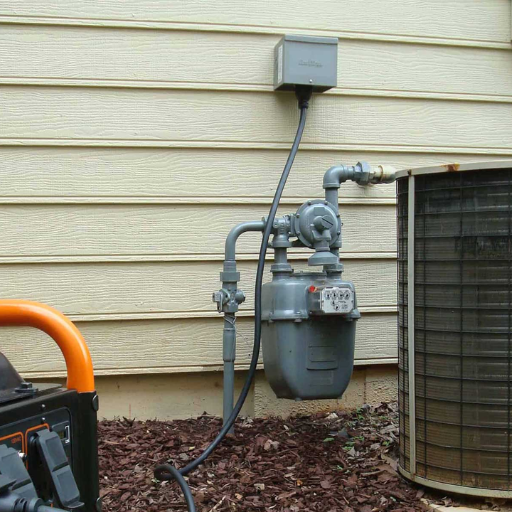
It is important to note that even after the installation of the generator, its reliability and durability might be compromised if it is not adequately maintained. To begin with, you would want to check for any wear and tear on the generator, look for oil levels, and perform oil and filter changes according to the manufacturer’s specifications. Clear the areas around the units and ensure that no objects may obstruct the unit’s ventilation. Run the unit on occasions and during periods of anticipated power cuts, and listen for any unusual sounds that may require an expert. Check batteries and coolant bottles, as these factors are vital for the operation of the generator. It’s also wise to have an annual maintenance check from a technician to determine any causative and underlying problems before they are aggravated. Following a maintenance schedule is the best way to ensure the generator is always in a good state when it is called upon and in the proper working order.
What Are the Best Practices for Keeping Your Generator in Good Condition?
Some best practices can be followed to ensure your generator always remains in working condition. First and foremost, to ensure the generator runs effectively, plan on regular service, including changing oil, filter, and rough workings on the unit time specified by the manufacturer. Constantly keep the generator’s components clean, especially collected dust on air vents and cooling fins. Ensure every nut, bolt, and other connector is regularly checked and tightened to eliminate any damaging odors from vibration. Further, to prevent old fuel from being in the fuel system, the generator must be run now and then, which additionally helps lubricate its parts. Finally, ensure that the equipment is kept out of reach so that it doesn’t get exposed to the weather or too much dust, which will make it rust. By employing these strategies comprehensively, the longevity and durability of the generator will be enhanced, and so will the efficiency that will be realized from it.
How Often Should You Service Your Home Generator?
I understand that it is essential that I carry out regular maintenance on my home generator so that it performs as expected. Once every 12 months, routine generator maintenance can be done by the house owner personally or handed over to an expert, especially when maximum demand is expected, such as during Hurricane or winter. In addition, I am compliant with the manufacturer’s recommendations and service the equipment after several hours of use, which is between 100 and 200, depending on the brand. This maintenance will consist of oil and filter replacement, battery replacement or inspection, and inspections for any worn-out or defective parts. Through these guidelines, I have been able to maintain the reliability and availability of my generator when any of them is required.
What Common Electrical Issues Can Affect Generator Performance?
Some issues with the electricity are quite common and thus can be considered drawback/s or limitations that may affect the generator’s performance. One fundamental issue is voltage controls. In this case, an effortless failure of the generator is that the voltage output should be able to remain within the limits recommended for that specific generator model; otherwise, appliances connected to the generator may incur damages. Another problem might be a faulty or low-performing alternator, as this is responsible for providing electric currents to all electrical loads powered by the system. There are also issues of poor connections or old, woefully worn wiring that can cause power drops and variations in power supplied. So, it helps to keep these parts under close watch and repair or replace burnt parts for a satisfactory electricity supply. Some people go overtime and overload a generator, which does not need to be done because, at all times, it is best straightforward. Many people generally check these points to ensure the generator’s smooth, dependable action.
References
-
Why You Need an Electrician to Install a Generator – Mister Sparky – Highlights the benefits of hiring a licensed electrician for generator installation.
-
Top 10 Home Generator Installation Near Me – Angi – Provides a list of top-rated generator installation services.
-
Find a Generator Installer Near You – Thumbtack – Offers a directory of generator installers rated by the community.
Frequently Asked Questions (FAQ)
Q: Why should I hire a licensed electrician for my generator installation?
A: Hiring a licensed electrician ensures that all electrical work complies with local codes and safety standards, which is crucial for a reliable power backup system.
Q: What are the essential electrical needs for installing a backup generator?
A: Essential electrical needs include assessing your home’s electrical system, determining the required generator capacity, and planning for switch installation to seamlessly transfer power during outages.
Q: How do I choose the right generator for my home or business?
A: Choosing the right generator involves evaluating your power needs, understanding the differences between a whole-house generator and a portable generator, and consulting with an electrician to determine the best generator for your specific requirements.
Q: What is involved in the switch installation for a generator?
A: Switch installation typically involves connecting the generator to your home’s electrical breaker box through an inlet box, allowing for a safe and efficient power transfer between utility and generator power.
Q: How do I determine the generator capacity I need?
A: To determine the generator capacity, consider the total wattage of the appliances and systems you want to power during an outage. An electrician can help you calculate the necessary capacity for reliable power.
Q: Can I install a generator myself, or do I need an electrician?
A: While some homeowners may consider DIY installation, it is highly recommended to hire a licensed electrician to ensure proper installation, safety, and compliance with electrical codes.
Q: What are the benefits of having a whole home generator?
A: A whole-home generator provides seamless power backup during outages, automatically activates when the power goes out, and supports all electrical systems in your home, ensuring comfort and convenience.
Q: How often should I have my generator serviced?
A: It is advisable to have your generator serviced at least once a year to ensure its reliability and functionality. Regular maintenance can prevent issues and ensure your generator is ready when needed.
Q: What types of generators are available for residential use?
A: Residential options include whole-house generators, which provide power for your entire home, and portable generators, which can be used for specific appliances or outdoor activities. Each has its own set of advantages based on your electrical needs.
Q: What should I do if my generator is not working correctly?
A: If your generator is malfunctioning, contact a licensed electrician to diagnose and perform any necessary electrical repairs. Regular checks can help identify issues before they become significant problems.



